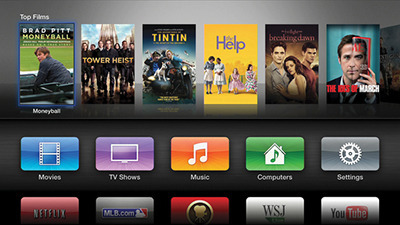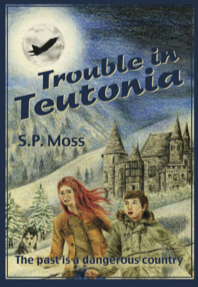Brian Clegg's Blog, page 97
May 8, 2014
Review - Why Science Does Not Disprove God
 There have been a good few attempts to counter Richard Dawkins' best selling The God Delusion (I know I've reviewed this somewhere - I think it was on my old Nature Network blog, but I can't find it, so I'll have to review it again some time soon!), but I think this is one of the more interesting, as it's written by a mathematician and physicist turned science writer, who certainly knows a lot more about physics than Dawkins.
There have been a good few attempts to counter Richard Dawkins' best selling The God Delusion (I know I've reviewed this somewhere - I think it was on my old Nature Network blog, but I can't find it, so I'll have to review it again some time soon!), but I think this is one of the more interesting, as it's written by a mathematician and physicist turned science writer, who certainly knows a lot more about physics than Dawkins.What Amir Aczel sets out to do is to look at the claims made by the likes of Dawkins which attempt to use scientific arguments to 'disprove' the existence of God and to counter those, and on the whole he is quite successful. I ought to stress what he doesn't do - and could never do - is in any sense 'prove' the existence of God. As Aczel says towards the end 'In this book I have not proved the existence of God in any shape or form, and this has obviously not been my purpose. What I aimed to do was to argue - convincingly, I hope - that science has not disproved the existence of God.' (My italics.)
Aczel approaches this task with a lot more science than I recall Dawkins using. Along the way we get summaries of quantum theory, cosmology, evolution, the mathematics of infinity and more, all used to show the flaws in the 'science disproves God' argument. These have to be fairly rapid summaries - there are plenty of better books covering each subject in detail - but might be helpful to give context to those who aren't familiar with the scientific theories that get thrown around in these kind of arguments.
There's a degree of subjectivity, inevitably, but for me Aczel makes three quite strong hits. He shows the weakness of the anthropic principle as a way of deriving anything (something most scientists are perfectly well aware of), he makes the multiverse interpretation of quantum theory as a way to explain the strange 'tuned' nature of our universe look a bit silly, and most interestingly for me he demolishes the negative aspect of the 'God of the gaps' argument.
This is essentially a suggestion that the tendency of non-fundamentalist religious believers to accept scientific theories that contradict early religious teaching results in God being just responsible for 'the gaps' left behind by the science, making the God concept more and more pointless. Although Aczel doesn't use this terminology, I think he nicely demonstrates that the current position is more 'science of the gaps' - almost all the big questions like how could a universe start from nothing, why do the charges of the electron and quarks balance out the way they do, how did life start, what is consciousness and how did it emerge are still left to be answered. Science does a wonderful job, but frankly we've only managed the easy bits.
So, quite an interesting book that successfully demonstrates the emptiness of much of Dawkins' argument. However, on the down side, it isn't as readable as a Dawkins book, some of the history of science is too simplistic (we get the good old myth that Giordano Bruno was burned to death 'for believing that the sun was a star and that the universe contained other civilisations' which is utter tosh), and it suffers from being a negative book, constantly attacking Dawkins et al, which gets a bit tedious after a while.
I have always argued that the only scientific viewpoint on God is agnosticism rather than atheism, as atheism espouses a belief without evidence, but in the end that's all this book can and does deliver. Science doesn't disprove God - case closed. So what it does in its own right is limited, but I do think it is useful in highlighting the way the opposite attempts from the 'new atheists', as typified by Dawkins, to show that science can somehow manage this impossible feat is flawed and hollow.
You can get hold of Why Science Does Not Disprove God at Amazon.co.uk and Amazon.com.
Published on May 08, 2014 00:49
May 7, 2014
Why Apple should love Netflix
 Note how Netflix lurks under the iTunes Movies and TV Shows
Note how Netflix lurks under the iTunes Movies and TV Showson the default Apple TV interface layoutSome may wonder why Apple, never famous for supporting anyone else, allow Netflix, a kind of rival to iTunes, onto their Apple TV box. It might not be true, but my suspicion is that Apple is entirely aware of what you might call the Season 1 effect - and how it can positively influence their balance sheets.
Here's the thing. Netflix is a great place to consume a TV series voraciously. Once you pay your monthly subscription for Netflix you can watch as much as you like. But the service quite often doesn't have the most recent series of a programme. That's happened to us twice recently with shows that had a strong following when on 'normal' TV, but that we never got round to watching - Last Tango in Halifax from the BBC, and The Bridge from Sweden. In both cases we've cruised through season 1 on Netflix, and know that season 2 is out there - but it has already fallen off the BBC's very short iPlayer timescale. So we've ended up buying the second season on iTunes so we can keep feeding the habit.
I'm sure we can't be alone. You really get into a series, you know there's more, but Netflix hasn't got it yet, so you plunge in with the cash. (I had to do the same with Season 5 of Fringe, though for that I bought a boxed set.) And so Apple should be really pushing Netflix for all its worth. Okay, it means once something is on Netflix, Apple's sales drop off. But even so, as long as Netflix tends to be around a season behind the world, Apple will have the chance to make easy pickings.
Image from Wikipedia
Published on May 07, 2014 00:30
May 6, 2014
People are more important than buildings
 Heritage asset and liability simultaneouslyThe poor old Church of England is getting bad press again. And in this case it certainly deserves it - or at least some individuals on Parochial Church Councils (PCCs) do.
Heritage asset and liability simultaneouslyThe poor old Church of England is getting bad press again. And in this case it certainly deserves it - or at least some individuals on Parochial Church Councils (PCCs) do.Apparently around 250 PCCs are using a medieval law that allows them to register 'Chancel Repair Liability' against properties that have this provision in their deeds. This anachronistic law requires the owners of certain houses to pay for the upkeep of the local church - sometimes it can be single household that in principle is responsible for this liability.
This is appalling, ridiculous behaviour, which to be honest I don't blame the Church of England as a whole for, but rather those PCCs. I know something of these, as I was on one accidentally for 3 years when I was in my 20s (don't ask) and sadly PCCs, like parish councils (think Vicar of Dibley) all too often seem to get frequented by the kind of committee-loving person who really hasn't a clue but likes to hear the sound of their own voice.
It's not that I don't sympathise with the problems the PCCs face. They have to keep up a very expensive, very old building and are bound around with restrictions in what they can do. If we want to keep old churches standing and accessible to all in our villages and towns - and these are some of the most beautiful buildings in the country - we all should take some responsibility paying for them one way or another. But not by using this ridiculous archaic law, which should be repealed immediately.
I think there are a couple of things that need to happen (apart from scrapping the law). One is that the churchgoers need to be prepared to give up some buildings. In many rural communities you have a collection of villages - sometimes as many as 7 or 8 - with a single vicar, but each with their own church. They could easily lose half the buildings, as these villages are often just a few miles apart. That would slash their upkeep costs (and increase the size of their congregations at any particular service). Then there should be a clear mechanism to make disposal easy.
Official bodies (local councils, English Heritage etc.) should be given the option to take the building on in return for paying something to the PCC - but if the bodies don't want to do this, the PCC should be allowed to sell the building off for any use, provided it is preserved and accessible to the public on certain days of the year. And if no sale is possible with these strictures, the official bodies (including the locals) should be given a final chance to take it over before the building is sold for redevelopment. That would liven up the decision making process!
__________________________________________
P. S. My book 'Universe Inside You' is a Kindle Daily Deal at 99p. It's currently at number 222 on the rankings - help me top the chart!
UPDATED 5.23pm - it's currently #9 in the Kindle bestseller list: all help appreciated to make it #1!

Published on May 06, 2014 00:35
May 5, 2014
Trouble in Teutonia review
 I enjoyed Trouble in Teutonia (by S. P. Moss, who recently contributed a guest post for this blog), because for me it was pure nostalgia. Since I stopped reading to my daughters (something I really miss) I don't read many children's books, usually only straying into the rather older targeted YA books that are intended to cross over to an adult readership, where this seems solidly for young people. But the nostalgia wasn't so much for those bedtime stories as for the kind of tales I used to read when I was that age.
I enjoyed Trouble in Teutonia (by S. P. Moss, who recently contributed a guest post for this blog), because for me it was pure nostalgia. Since I stopped reading to my daughters (something I really miss) I don't read many children's books, usually only straying into the rather older targeted YA books that are intended to cross over to an adult readership, where this seems solidly for young people. But the nostalgia wasn't so much for those bedtime stories as for the kind of tales I used to read when I was that age.For one thing, a lot of my comics when I was young were still set in World War 2, with the Germans inevitably the baddies, and the heroes being plucky British servicemen (not many women, sadly). This story may be set primarily in the early 1960s (where our modern hero is plunged back in time on a carousel to once more meet his then young airman grandfather), but the feel is still very reminiscent of those war stories. There's almost a touch of Biggles. I never liked the actual Biggles books, but I loved W. E. Johns' science fiction series when I was 9 or 10 (I've read one since - they're terrible!), but I don't mean that the Bigglesy flavour is a bad thing, it just contributes to that feeling of nostalgia. What's more, the war comics almost always seemed to involve attacking an underground submarine pen, reminiscent of the main setting here (and of early Bond movies).
There are a few nice puzzles to crack as young Billy works to free the trapped heroine - she's suitably feisty, though I don't think she had enough to do. In some ways, my favourite part was the handling of another character who is also in the present and the past sections of the book - the rich Leslie de Winter of the 21st century 'top and tail' sections of the book, who in the past is just Airman Les Winter, something of a sad character, making the modern day, pompous man, who initially comes across as a total waste of space, as someone with more pathos.
What slightly grated for me was the way the book was primarily set in 'Teutonia' which is Germany (down to people speaking German, not Teutonian) with a different name. I really couldn't see the point of this - I prefer real settings for books and there didn't seem any reason for this name change.
However, it's a rollicking, fast paced adventure, with a bit of time travel thinking thrown in, primarily requiring a bit of care because Billy has already travelled back in time in a previous book to have an adventure with a slightly older version of his grandfather, so knows parts of his relative's near future. It should go down well with its target audience, particularly those 9-12 year olds who struggle to find a book they'd like to read.
You can find Trouble in Teutonia at Amazon.co.uk and Amazon.com.
Published on May 05, 2014 02:08
May 2, 2014
Getting a bit of a tan
 If your only association of ‘tannin’ is that stuff that makes tea taste astringent, you’ve got some surprises to come in my new podcast for the Royal Society of Chemistry. After all, 'tanning' and 'tannin' don't just sound similar by coincidence... and then there's the tannenbaum.
If your only association of ‘tannin’ is that stuff that makes tea taste astringent, you’ve got some surprises to come in my new podcast for the Royal Society of Chemistry. After all, 'tanning' and 'tannin' don't just sound similar by coincidence... and then there's the tannenbaum.To find out more about the stuff that links leather trousers to a nice cup of tea, take a listen by clicking play on the bar at the top of the page - or if that doesn't work for you, pop over to its page on the RSC site.
Published on May 02, 2014 00:48
May 1, 2014
Where are the normal families?
 I have to confess to a sneaking liking for Coronation Street. (I'm from near Manchester, I am obliged to. It's an old charter or something.) But I do think it is high time the Street was allocated a permanent family counsellor. Because its children are suffering like no others in the UK.
I have to confess to a sneaking liking for Coronation Street. (I'm from near Manchester, I am obliged to. It's an old charter or something.) But I do think it is high time the Street was allocated a permanent family counsellor. Because its children are suffering like no others in the UK.At the moment, Coronation Street features approximately 15 children under the age of 18. These are:
Faye - adoptedCraig - lives with mother, father unknownSimon - mother died, lives part time with father and part time with (separated) stepmotherAmy - lives part time with mother and part time with (separated) fatherHope - father died, lives with mother and boyfriendJoseph - lives with mother, separated from fatherLiam - father dead, lives with motherRuby - lives with father, separated from motherDev's children (2) - mother dead, live with fatherCal's children (2) - mother dead, live with fatherKylie's children (2) - one father unknown, the other lives with mother and father (though they were separated until recently)Tina's (surrogate) baby - living with genetic parents, but not birth motherI might have missed the odd one, but that's most of them. And here's the thing. I know a 'normal' family where a child lives with its mother and father is less common than it used to be, but this is ridiculous. According to government statistics, around 75% of children under 2 live with both parents and the majority of all children live with both parents. Yet on Corrie, only around 7% of children live with both parents. And the only child with an 'ordinary' family has David Platt for a father. I mean, really. Come on.
Oh, yes, these people need a counsellor, and they need one quickly.
Image from Wikipedia
Published on May 01, 2014 01:20
April 30, 2014
We need to be enterprising
 The Careers Fair was lively all day, but I caught it at a fairly quiet momentI spent an interesting day yesterday at the Civic Centre in Trowbridge at the invitation of Wiltshire Council. The event was a 'Careers Fair and Enterprise Day', with the idea being to give 16+ young people some help with with moving in the direction of their desired careers. It was a great idea, though I think there were a few lessons to be learned in terms of how to do it.
The Careers Fair was lively all day, but I caught it at a fairly quiet momentI spent an interesting day yesterday at the Civic Centre in Trowbridge at the invitation of Wiltshire Council. The event was a 'Careers Fair and Enterprise Day', with the idea being to give 16+ young people some help with with moving in the direction of their desired careers. It was a great idea, though I think there were a few lessons to be learned in terms of how to do it.The Careers Fair part was buzzing and clearly doing a good job, as was the Apprenticeship Bus parked outside. Then there were the opportunities to undertake practice interviews and tables where various interesting people (including me) sat, able to provide Q&As on what it's like to work in their particular field. These were less successful.
The interviewers were quite busy in the morning, but mostly unoccupied in the afternoon. This was a real shame - mock interviews are hugely useful. I've interviewed for real, and a lot of young people don't have a clue how to present themselves. I also do mock interviews at our local secondary school, and know how much these help - so there should have been some gentle pressure to ensure the young people attended at least one of these, perhaps stressing they didn't have to have an interest in the particular organisation that was doing the interviews.
As for the Q&As, I think these were the least successful, because of a lack of structure. The young people didn't know where to go or how to use us. The principle's good, but I think there should have been more Q&As tailored to specific requirements (we had a huge batch of people who wanted to be electricians, but no electricians doing Q&As, for instance), and also perhaps a clear schedule - so if, for instance, you wanted to hear about science, to visit me (perhaps in a separate smaller room) at 2pm or whatever.
There was a bright side about sitting around most of the day with little business to occupy me, though, which was meeting the other people involved. As well as the Wiltshire Council folk, who it was good to meet (and weren't at all 'councilly' if you know what I mean), there were four people who stood out for me.
I got to meet the High Sheriff of Wiltshire, Peter Addington, which was fascinating, if only to find out more about his role and to add him to my collection of strange position holders I've met in the county, as I already know the Lord Lieutenant. It's quite mind boggling, but apparently all the counties still have sheriffs, the longest established official role in the country after the monarchy and the direct descendants of the likes of the Sheriff of Nottingham (though much nicer).
 Jemima (right) joins Wiltshire Council's Susan Barker
Jemima (right) joins Wiltshire Council's Susan Barkerin pretending to read my booksEqually interesting were an Asda community rep (she had a fancy title, but I've forgotten it), which every store apparently has - someone whose role full time is to work with the community, which is a great idea - and a youth worker with a charity that helps young people who don't get on with education but haven't been able to get a job, who was clearly highly dedicated and very eloquent about his role.
Last, but certainly not least, I shared my table with a genuine member of Team GB (she had the official track suit to prove it). Jemima Duxberry is currently fourth in the world in her class in Judo (number one in Europe) and hoping to represent us in the Olympic Games in Tokyo in 2020. I'll be honest, with my inbuilt dislike of all things sporting, I wasn't quite sure what it would be like to be sitting alongside an athlete - but she proved to be an excellent conversationalist and not at all how you might expect a sportsperson to be if your main experience of hearing them speak is interviews with footballers.
All in all, the kind of thing we need more of to help young people into the right employment.
Published on April 30, 2014 01:51
April 28, 2014
Small is beautiful
 I have had my fingers burned in the past by taking part in a small literary festival. The Brympton Festival, near Yeovil, involved a lovely location, but was a disaster because hardly anyone turned up, and the festival organisers were unable to pay the promised expenses. But when they work well, the small literary festival can be a delight - and never more so than last weekend with the Kempsford festival, just a few miles from where I live, which I attended both as a speaker and audience member.
I have had my fingers burned in the past by taking part in a small literary festival. The Brympton Festival, near Yeovil, involved a lovely location, but was a disaster because hardly anyone turned up, and the festival organisers were unable to pay the promised expenses. But when they work well, the small literary festival can be a delight - and never more so than last weekend with the Kempsford festival, just a few miles from where I live, which I attended both as a speaker and audience member.Arguably it was thanks to Roy Hattersley, who sadly was unable to speak due to illness - but this left a last minute slot to fill, which saw me giving my time machine talk. The festival ran for three days and featured a fascinating range of speakers from Barry Norman to Douglas Hurd. We had everything from a Countess turned historical novelist to an MP who is an expert on the Tudors.
There are several reasons this festival worked so well. The venue was unusual, to say the least - a large village church with unusually comfortable seating and stunning architecture. The organisers combined enthusiasm and professionalism - the whole ran smoother than any festival I've ever attended, including the big ones. And the range of speakers was top quality, but compact enough that I could happily have attended every session on all three days.
As it was, apart from my own talk I only made it for Barry Norman and Chris Skidmore (on the battle of Bosworth). Norman was someone I've grown up with on TV, and who has certainly fostered my love of film, so it was great to hear him speaking in person - and he proved to be a wonderful raconteur, ably assisted by Tim, the festival's MC, who ran the session as a Q&A. Skidmore made me realise just how ignorant I am of British history, and gave a chilling description of the death of Richard III as part of his explanation of how the Tudors came to power.
However, next time around, I will certainly be attending far more of the talks, if this year's line-up is anything to go by. I just love the eclectic mix of topic and the genuine crossover of education and entertainment. When you think that I could have been watching Britain's Got Talent if I hadn't attended the festival, there was no contest - far more of us should be going to events like this, rather than sitting slumped on the TV. And I haven't even mentioned the cakes and wine. I do wonder if the term 'literary festival' puts some people off because it sounds too highbrow and unapproachable - where instead this was thought provoking, warm and fun.
You can find out more about the festival at its website. If you live anywhere around the confluence of Wiltshire, Gloucestershire and Oxfordshire (yes, I know, counties don't flow, but you know what I mean) it makes Kempsford well worth visiting, I'd recommend keeping an eye out for future events. I think the next one is due in 2016.
Published on April 28, 2014 03:43
April 25, 2014
Milkonomics
Younger readers may find it hard to believe, but when I was young there were still gas lights in our town. When I was very young my Grandma's street in Smallbridge still had gas lights, and Rochdale station had them until 1970. But they were already long doomed. As soon as electric lighting became widely available, gas lighting was inevitably on its way out, and the sooner the better. Yet I am sure it had its fans in its day.
#89755805 / gettyimages.com
I mention this because I am wondering if there's a similar picture with the milkman. I'm probably of the first generation that has never had a milkman. My parents did as a matter of course - and at one point it made a kind of sense, when most households didn't have fridges, so you really needed fresh milk every day. But things are different now.
I had always assumed that people still used the milkman because they were prepared to pay a few pence more for the convenience, but I was shocked the other day to discover just what the premium is. Someone I know using a milkman is paying 40p a pint more than I do at the supermarket. I found that quite shocking. Assuming a family gets through about a pint of milk a day that means the milkman customer is paying around £150 a year to have their milk delivered. To be honest, there is a lot I'd rather do with £150 than subsidise a milkman.
Like all change, there is a cost attached. As milkmen cease to be employed there is a loss of jobs - but is it the kind of job, with its antisocial hours, that we really want to be preserving? You can talk about the social benefit, but frankly there's not a lot. The fact is, the milkman is the retail equivalent of the gas light. It is a concept that has had its time, but is now past.
#89755805 / gettyimages.com
I mention this because I am wondering if there's a similar picture with the milkman. I'm probably of the first generation that has never had a milkman. My parents did as a matter of course - and at one point it made a kind of sense, when most households didn't have fridges, so you really needed fresh milk every day. But things are different now.
I had always assumed that people still used the milkman because they were prepared to pay a few pence more for the convenience, but I was shocked the other day to discover just what the premium is. Someone I know using a milkman is paying 40p a pint more than I do at the supermarket. I found that quite shocking. Assuming a family gets through about a pint of milk a day that means the milkman customer is paying around £150 a year to have their milk delivered. To be honest, there is a lot I'd rather do with £150 than subsidise a milkman.
Like all change, there is a cost attached. As milkmen cease to be employed there is a loss of jobs - but is it the kind of job, with its antisocial hours, that we really want to be preserving? You can talk about the social benefit, but frankly there's not a lot. The fact is, the milkman is the retail equivalent of the gas light. It is a concept that has had its time, but is now past.
Published on April 25, 2014 02:09
April 24, 2014
A tale of two alarm clocks
 The now defunct clockOver fifteen years ago I bought an alarm clock, which served me well all that time until the button that had to be pressed to set the time broke, so when the clocks went forward, it was a goner.
The now defunct clockOver fifteen years ago I bought an alarm clock, which served me well all that time until the button that had to be pressed to set the time broke, so when the clocks went forward, it was a goner.It was a very simple alarm clock. It wasn't a radio. It didn't play music. It didn't make tea. It just did two things - woke you up and told the time. Frankly, I don't need an alarm to wake me up any more. My phone does that just fine. But this alarm had a big (I mean 4 cm high) numbers in a clearly illuminated display, which was wonderful. I wake up a lot in the night, and a quick glimpse at it, without my glasses on, was enough to check the time. It was brilliant, and all I wanted was to replace it with an identical clock. Only as far as I can see, Ross, the manufacturer, doesn't exist as a company any more.
In the end I went for about the only decently large display alarm I could find. It's clearly different in that the display is red rather than green - but that's no matter. I was delighted to discover that it is exactly the same alarm in different clothing. Apart from that colour change, the display is identical - and it's clearly the same chip, with exactly the same setting mechanism.
 The new clock, on the bedside table, earlierOkay, the alarm sound, which used to be an irritatingly blaring buzzer, is now a rather mellow peeping - but that's all to the good. The only other difference is the controls. Though functionally identical, they have moved from the top of the clock to a panel in front, which is taking a little getting used to. They have also been designed by someone who hasn't been taking their medication, with strange, arrow shaped sliders that make no sense at all - but this just adds to its charm.
The new clock, on the bedside table, earlierOkay, the alarm sound, which used to be an irritatingly blaring buzzer, is now a rather mellow peeping - but that's all to the good. The only other difference is the controls. Though functionally identical, they have moved from the top of the clock to a panel in front, which is taking a little getting used to. They have also been designed by someone who hasn't been taking their medication, with strange, arrow shaped sliders that make no sense at all - but this just adds to its charm.I am a happy bedtime bunny. (If you want to be too, here's the clock on Amazon.co.uk)
Published on April 24, 2014 00:29



